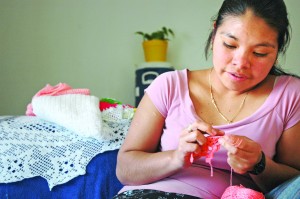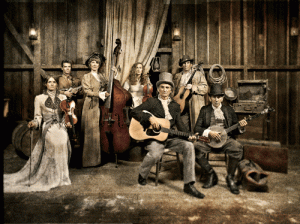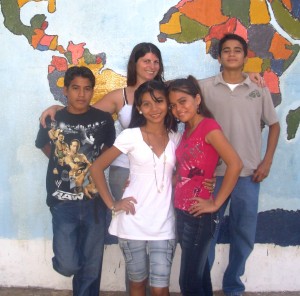By Martha Quillen
May is a pleasant enough month – the mother of spring, and welcome end of a long, dreary, wind-blighted Rocky Mountain shoulder season. Yet I associate it with death, and have ever since my brother-in-law died on May 1, 1974.
Ed and I had just moved to Kremmling to work for the newspaper there and hadn’t gotten a phone yet, when a police officer arrived at our door at 6 a.m. He told me there was an emergency and handed me a phone number.
I knew what had happened immediately, but I didn’t want to believe it. Ed’s little brother was doing all right; he was supposed to get out of the hospital at 8 a.m. that very morning. I woke Ed up and we went in to work, where Ed called his parents, who confirmed the terrible news.
Afterwards I went outdoors and looked up at the hills. There was just a hint of green brightening the mountains to the southwest. How could anyone die now? I wondered. Die before the leaves budded, the grass came in, and the rivers rose? How could someone weather the stark, dirty days of February and the mud-sodden month of March, and not hold on until spring?
Philip’s death at thirteen seemed intolerable. I knew he was dying; he had muscular dystrophy before new treatments boosted survival rates. But the doctors had predicted that he’d probably be all right until he was fifteen or sixteen, despite being confined to a wheelchair.
Then a medical error cut his time short. People told me that it was for the best; he was sick and his life was difficult. Maybe they were right. But Philip was just a kid with an infectious grin, an astounding repertoire of knock-knock jokes, and an endearing enthusiasm for biplanes, board games, and trivia about the Red Baron. And because I knew his time was limited, I’d developed a glorious bucket list of things to do with him – books to read, games to play, and projects to build. Delusional dreams as it turned out.
But Philip did survive until springtime. Snow capped the gray granite peaks of Eagles Nest, and the surrounding hills looked withered and brown, but when we got down to the front range for Philip’s funeral, it was as green as the fabled hills of Ireland. In the city it was summer.
It was the same this May, when Ed and I went to Fort Logan National Cemetery for his father’s burial service. Edward Kenneth Quillen Jr. died on May 3, 2011. His death was not unexpected. If anything it was heartbreakingly anticlimactic, and had been coming for so long that it felt as if we had been missing him forever.
As the minister talked about the Ed Quillen he had known (the one who loved to argue scripture), I thought about the Ed Quillen who had disappeared years earlier, the one who loved to hang out with his boys, fix cars, go out for coffee, and putter in his shop, the one who was always making something – be it a table or water fountain or whirly-gig. Did the Ed Quillen who remained remember life the way it had been before persistent pain and chronic fatigue intervened? Before he got so tired that it was an effort to carry on a conversation? Before we started losing touch with him because we didn’t know what to say or do?
Illness had changed him; it had changed all of us. After my father died, it took years to remember him, instead of remembering the cancer, and chemo, and wasting, and worry.
My dad died on Memorial Day weekend 32 years ago. In the ensuing days my older sister kept expressing her feeling – or perhaps worry – that his death was a life-changing transition for all of us, a milestone so to speak; we were now the older generation, seniors charged with senior responsibilities, already headed toward (to hear her tell it) disabling disease, dementia, and joint deterioration.
At twenty-eight, I was not convinced. I figured if I started regarding myself as some sort of elder or matriarch, people would think me demented. “And what about Patty?” I objected, referring to our younger sister who was only sixteen at the time. “She can’t even vote yet.”
Clearly our father’s death had not made us older or wiser. But in retrospect, I realize that my older sister’s fear about being thrust into a position of responsibility that she wasn’t ready for was warranted. She was thirty-five at the time, a school teacher and mother of four, who was married to a school teacher who also owned a construction company. Whereas Ed and I had two toddlers, and had recently spent the last of our savings to relocate to Salida so he could be Managing Editor of The Mountain Mail, a managerial position to be sure, but one that paid less than an entry level teaching position. So … If my mother had needed assistance of any sort, she definitely wouldn’t have been looking my way.
Unfortunately, Ed and I still lack the means to be effective benefactors, but we are certainly not alone in that regard. Now, the average annual cost for nursing home care tops $60,000 and complaints about extraordinarily high medical bills are routine. Today, tests often cost thousands of dollars, broken bones can cost tens of thousands, and a single patient’s chronic care can consume hundreds of thousands of dollars yearly.
Only Oprah and Bill Gates can pay bills like that out of pocket, not me, not U.S. Senators or Congressmen, not state governors, and not the politicians who want to gut Medicare and Medicaid.
Now that health care costs frequently exceed what a patient makes in a year, or even five years, Americans meet such expenses by pooling their money. Whether you rely on private insurance, employer subsidies, or government programs, in the case of catastrophic illness, we (be it you, me, or Representative Ryan) rely on other people’s money. And we all rely on government support for hospitals, ambulance and fire departments, medical schools, medical research, state health departments, and rescue operations.
Yet when politicians talk about cuts they focus on cutting services for the poor, the elderly, and civil servants such as teachers, policemen, and firemen.
And don’t tell me that’s because Medicare, Social Security and local governments are in financial trouble, because the whole Federal government and most of the states are in financial trouble.
Greed, hubris, and malfeasance on the part of Wall Street and the world’s most powerful banks and corporations sank our economy. Now our governments are broke. So what’s the solution?
Let’s raid grandma’s social security check. After all, it would be a shame to make British Petroleum pay for cleaning up the Gulf, or to ask the top 1% of Americans whose income rose by 256% between 1979 and 2006 to pay a little more.
Death and illness are subjects I ordinarily avoid, since they seldom lend themselves to amusing anecdotes. But recent events, public and private, have brought them to the fore. Take bin Laden’s death for example.
Yes, it did seem a mite unsporting to kill an unarmed man, but I can’t honestly claim that it would have been better to start a firefight and thereby endanger countless civilians. (Or that we should have let a mass-murdering jihadist escape to kill another day).
But in my view, the proposals that came out of Congress during May were far more telling in terms of whether the U.S. has a whit of decency or humanity left.
Health care costs are beyond belief, our population is graying, unemployment is high, and our so-called representatives want to meddle with Medicare?
Wow, talk about timing. And life and death situations. And murder for money, which is what the Ryan plan really proposed. If it had passed, it would have shifted a considerable amount of the fiscal responsibility for senior health care from the Feds to the states, most of which are already desperately trying to reduce their financial obligations. It would have increased health care costs by adding administrative costs and corporate profits to the mix, and in all probability it would have led to paperwork snafus and a critical lack of care in some poverty-stricken regions.
So what would have happened to the people left out in the cold by such changes? Some of them would have died.
But Republicans don’t care. Their party line is mind-boggling. Slash Medicare, Medicaid and Social Security. Slash public jobs and the wages for public jobs. Teachers are paid too much, firemen are paid too much, and policemen are paid too much. Change election laws and redistrict so that poor people and minorities can’t vote. Eliminate collective bargaining, and unions. The contempt this platform shows for the working class is so aggressive, it’s shocking.
But such rhetoric isn’t just coming from Republicans. Democrats are promising many of the same things – to shut schools, fire teachers, slash benefits, and reduce pensions.
This cruel, mean-spirited, disdainful assault on working class Americans is despicable. The working class needs a bigger slice of the pie, not a smaller one. We need more bargaining power, not less. And we need better representation, new ideas, and sweeping financial reforms. But more than that, we need to quit focusing on whether some other working stiff is getting a little more than us.
Dealing with old age, dementia, disabilities, catastrophic illness and death is devastating, even with Medicare and Social Security. Now imagine what life will be like when all of the government offices are closed, and you’re old, bedridden, and down to your last dollar, and have to appeal to your private insurer.
Don’t let corporate America, Wall Street and Congress pay for their mistakes with our lives.



